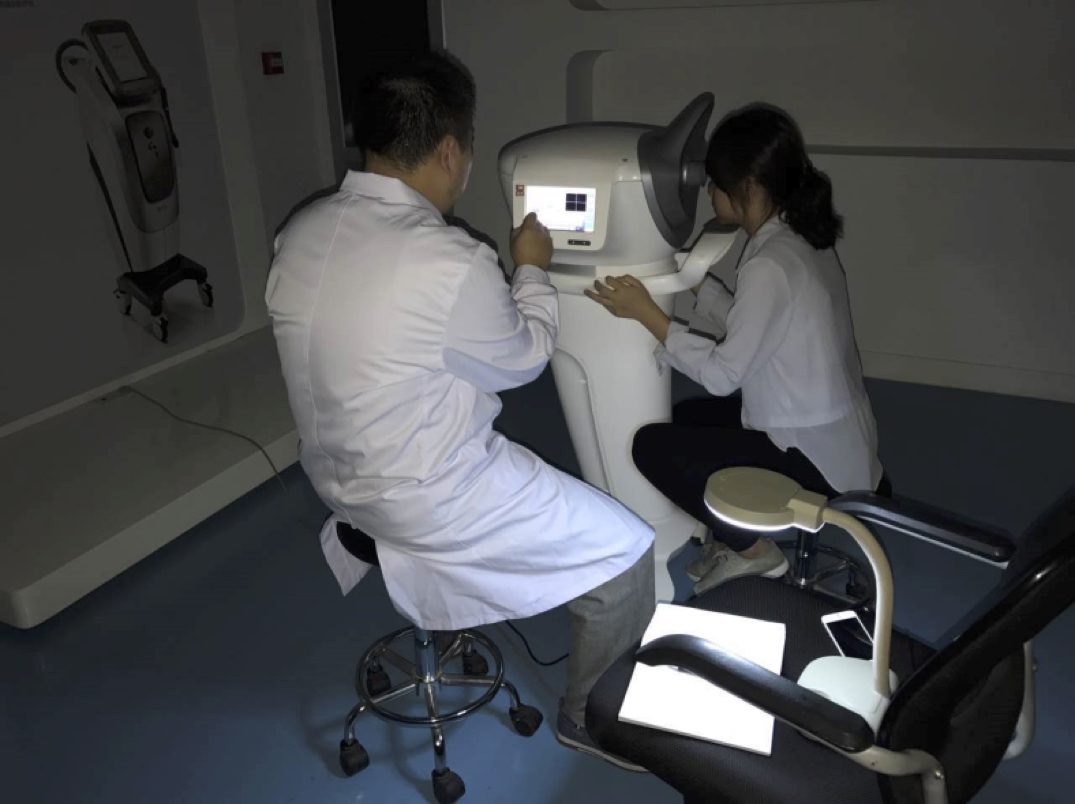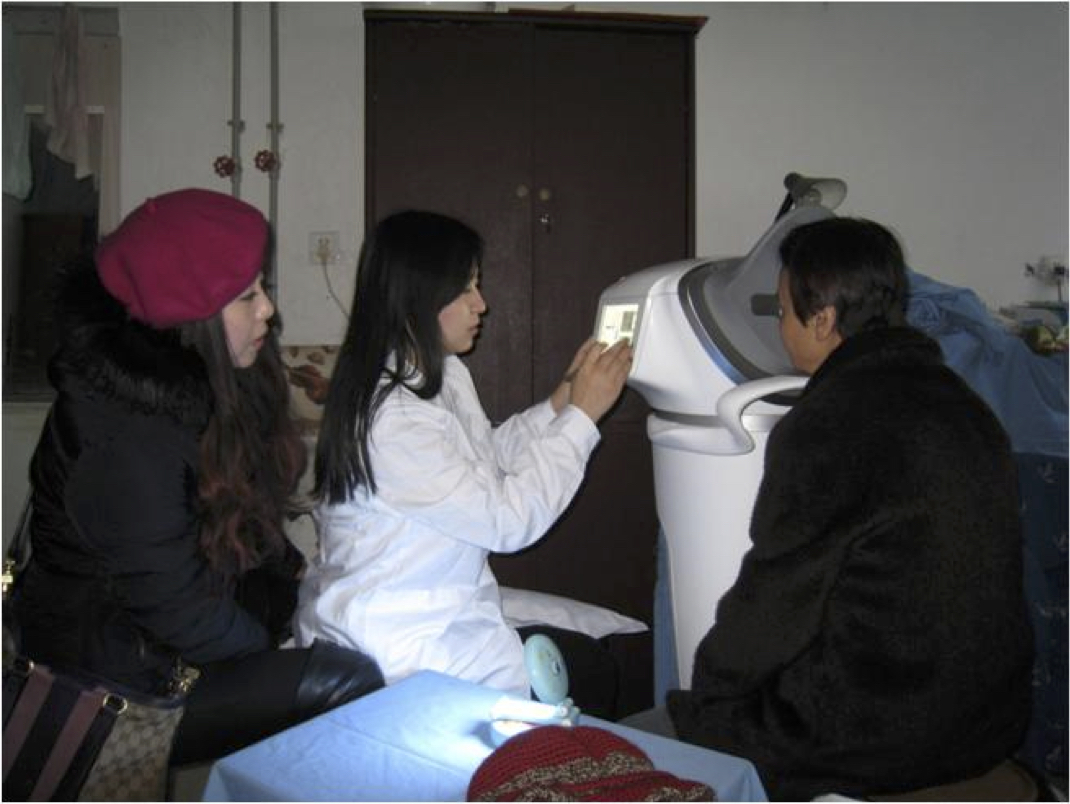Four-stimuli Threshold Perimeter Visual Field Analyzer for Glaucoma
CHE-FTP1000
Directly measure target IOP, international initiate
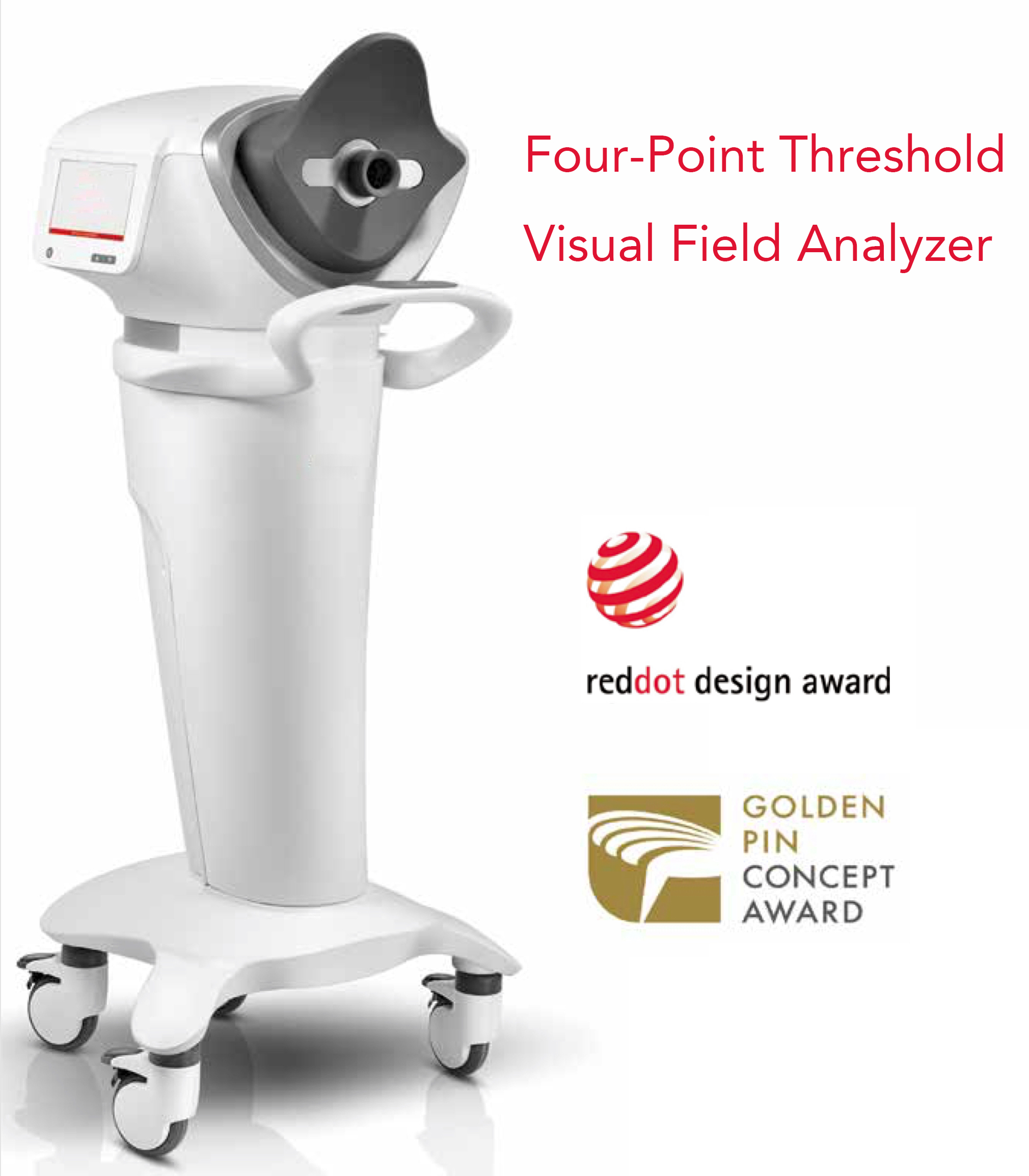
Principle:
Early glaucoma visual field would defect in Bjerrum Area easily, and according to a large number of clinical trials, the dark spots are found where are most likely occur in four positions of the human eye. These four particular location could be evaluated by static visual field and static threshold point inspection to find the minimum brightness of examiner’s reaction. Then contrast with normal brightness threshold value to achieve the purpose of early rapid screening for glaucoma.
Product features:
Early screening: Find vision damage before the visual function changing, and can help patients with early treatment;
High accuracy: the international initiative four threshold application patent technology, test results achieve the international testing standard;
Short testing time: 23 seconds for monocular detection;
Qualitative/quantitative detection: two testing modes, satisfy different clinical needs;
Easy operation: touch screen, instant print results.
Indications:
Early, rapid screening for glaucoma, which are widely used in medical institutions and health examination centers at all levels.

Characteristics of glaucoma
1. Harmful. Glaucoma is the number one irreversible blinding eye disease with a blindness rate of up to 30%.
2. Hidden deep, not easy to detect. Early glaucoma has no obvious symptoms and often develops into the middle and late stages when the patient is aware. According to the statistical population, 90% of open-angle glaucoma and 50% of angle-closure glaucoma were not detected.
3. The incidence rate is high and there are many patients. The prevalence of glaucoma averages 2-3% globally, and the incidence can be as high as 4-7% after age 50. For people over 40 years old, one in every 30 people may suffer from glaucoma.
4. Early intervention is the key. Glaucoma can not be cured after blinding. Early detection and early intervention can maintain a certain visual function. If you wait until the middle and late stages, there will be no medicine.
5. High-risk population, need to maintain regular follow-up examination. Family members with a history of glaucoma, hypertension, diabetes, and high myopia are all at high risk for glaucoma. People with immediate glaucoma's relatives are 10 times more likely to have glaucoma than normal people. In addition, the mental stress is high, the work pace is fast, the thoughts are too much, the sulking or the temper, the long-term use of eye fatigue, reading in the dark light for a long time, even getting used to watching TV in the extremely dark background may become The environmental cause of glaucoma. Because glaucoma patients are at high risk of blinding, regular follow-up is required for life.
Glaucoma screening problems
1. Current glaucoma examination equipment is not suitable for large-scale screening due to long detection time and high cost.
2. Medical institutions and medical examination centers at all levels do not pay enough attention to glaucoma diseases. Eye examinations do not even carry out glaucoma screening programs, and there is also a lack of testing equipment for glaucoma rapid screening.
3. Glaucoma diseases are more complicated, and multiple tests are needed for diagnosis. The first problem in early glaucoma is visual field defect, so the field of view
Examination is important for the discovery of early glaucoma.
Four-point threshold for moving up and down
Compared with OCTOPUS
Results
(1)The comparison results of each quadrant between the two visual field analyzers are drawn with the corresponding software. The linear correlation coefficient of the quadrant comparison results is 0.810-0.895.
(2) Check Time per eye of the two visual field analyzers:
Octopus: about 2’30” and four-stimuli -threshold visual field analyzer: 1 minute only.
Per capita eyes time-consuming: 5/2=2.5. It confirms that this visual field analyzer is the most suitable for screening and physical examination of normal people. It can check 60 persons in half a day.
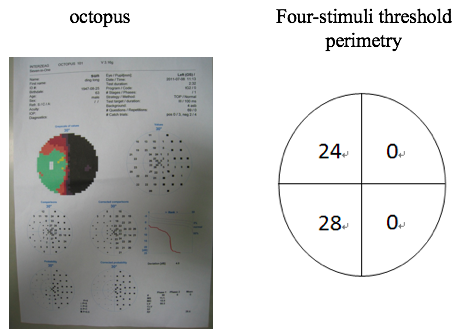 Conclusion
Conclusion
(1)Proved by this research:“Four-stimuli”are the best anchor stimili, are the most sensitive glaucoma VF defect stimili in Bjerrum’ area, and represent the full view of the quadrant.
(2)Directly mesure target IOP.
(3)We started to explore…
① Perimetry Vodovozov,1978; He Zhongjiang,1989
②Domestic computerized perimetry, He Zhongjiang,2004
③Humphrey perimetry scoring (AGIS units score)
④ Electrophysiology, rheoophthalmography, Dynamic fundus image tracking measurement, immature
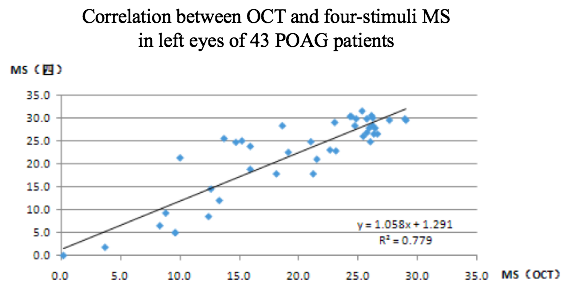
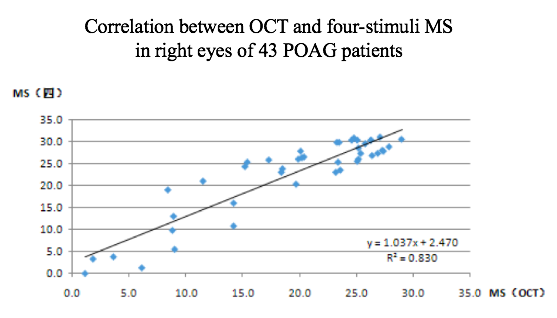
3 detection modes
Four-point rapid screening mode: This mode is qualitative screening, which is convenient to detect and short in time. It is suitable for screening of a large number of people in the primary screening and physical examination centers of ophthalmology outpatients.
Single-point rapid screening mode: This mode is quantitative screening, which can specifically detect the brightness-sensitive threshold of each quadrant of the eyeball. The detection brightness is divided into 40dB according to international standards, and the detection strategy is based on the international computer vision inspection 4-2-1 strategy. This mode is more accurate and is suitable for confirming the positive patients who are screened in the “Four-Point Rapid Screening Mode”, which can be used for rapid screening of ophthalmology at all levels of hospitals.
Single point conventional threshold mode: This mode is the precision mode. It is used to diagnose positive patients in the “single point rapid screening mode”, so that doctors can more accurately grasp the visual field of the examinee and provide a more valuable reference for definitive diagnosis.
 Specifications
Specifications
General indicator
Stimulus duration: 200ms
Visual inspection distance: 30cm
Perimeter type: Static Perimeter
Background brightness: 1.02-1.59cd/m2
The fastest single eye detection time: ≤23S
Fix fixation
Infrared eye position monitor: Yes
Gaze tracking: Yes
Fixation point color: yellow
Stimulate
Stimulus color: blue
Target size: Goldmann III
Maximum brightness stimulus: 1000ASB
LED light brightness adjustment mode: Pulse width debugging (PWM)
Operation interface: full touch screen
Software: Exclusive patented software program
Power supply: 220-240V, 50Hz
